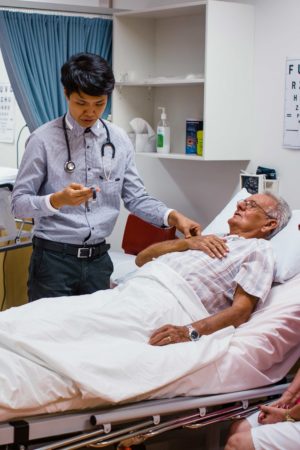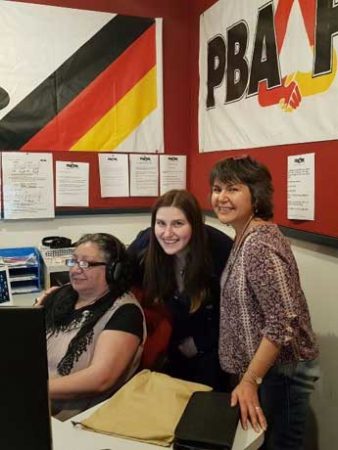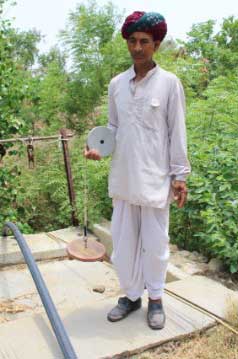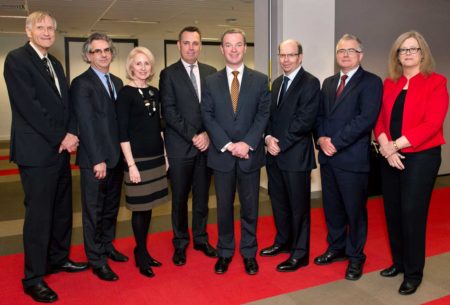
Public policy and thought leadership
From its establishment, the Innovative Research Universities (IRU) has collaborated on evidence-based approaches to public policy and strengthened the voice of its members with government. In 2003, one of the founding priorities was to provide members’ perspectives on the 2002 higher education reforms put forward by then Minister Dr Brendan Nelson within the Higher Education at the Crossroads paper. In 2007, the IRU convened a major event to discuss the national implications of university rankings after the first Academic Ranking of World Universities (ARWU) was announced. Since 2003, the IRU has made 185 formal submissions to Australian Government policy reviews, in addition to many other discussion papers, statements, and appearances before government and parliamentary committees.
Academic calibration and collaboration
In its 20 years, the IRU has remained focused on developing educational collaboration and capacity among its members and supporting student success. This began with Flinders University’s and Griffith University’s collaboration on curriculum in 2004, and has since expanded to multi-year, multi-university projects.
In 2006-2007, IRU members collaborated on a series of masterclasses for PhD scholars. In 2009, the IRU signed a two-year Memorandum of Understanding with the Australian Chamber of Commerce and
Industry to develop new resources to support Work Integrated Learning. In 2012, the Digital Futures Initiative incorporated collaborative projects and forums that focused on technology-enabled teaching and learning, while in 2013 the IRU Asian Languages Network was established to facilitate languages teaching and practice.
Operating since 2012, the IRU Academic Calibration Program has been the longest running collaborative project among members. The program facilitates an external peer review process to calibrate academic assessment and student outcomes among members to support accreditation through the Tertiary Education Quality Standards Agency. The program is a documented endorsement of the consistency and reliability of education, quality, collaboration, and assessment within the IRU.
These projects have been followed by other benchmarking activities, including new collaboration in cybersecurity in 2022. IRU member universities continue to collaborate on innovative approaches to teaching and learning.
Vice-Chancellors’ Fellow
In 2016, the IRU Vice-Chancellors’ Fellow program was established to boost collaboration among IRU members in areas of shared priority. Each VC Fellow has brought exciting and innovative projects that build capacity within the IRU and have led practice within the Australian higher education sector.
- 2016-2017, Professor Jessica Vanderlelie (La Trobe University)
- 2018-2019, Associate Professor Amani Bell (Western Sydney University)
- 2019-2020, Brendon Douglas (Charles Darwin University)
International partnerships and engagement
Internationally, the IRU has facilitated partnerships in both education and research. Developing new opportunities has been a key focus since 2005, when a Memorandum of Understanding was signed with the 1994 Group of Universities in the United Kingdom. Into the 2020s, the group continues to work together on new strategic international initiatives.
Since 2003, IRU student exchange programs have facilitated ongoing collaborations between our institutions. In 2005, the IRU established a European Union Centre and facilitated EU funding for student exchange in environmental sciences. From 2014, ahead of the New Colombo Plan, the IRU created the Scholars in Asia program that provided study abroad and internship opportunities for students in China, India, and Cambodia. In the same period, early career researchers participated in a mobility program with Thailand. In 2018, a Memorandum of Understanding was signed with the French Embassy for internships in student mobility.
In 2014, the IRU and the Malaysia Research University Network (MRUN) signed a Memorandum of Understanding and began a program of collaborative and innovative international research. At its conclusion, the IRU-MRUN project had successfully completed four collaborative teaching and learning projects, and funded another 11 research projects. In 2018, the IRU and MRUN published a joint report on the implications of digital learning.
The IRU Pakistan Project commenced in 2018 to build partnerships and increase brand awareness. With a joint in-country presence, this five-year partnership has facilitated educational webinars and workshops, school engagement, formalised meetings between government and senior education officials, as well as formal agreements through Memoranda of Understanding. It enabled IRU members to continue to build partnerships and support students through the COVID-19 pandemic.
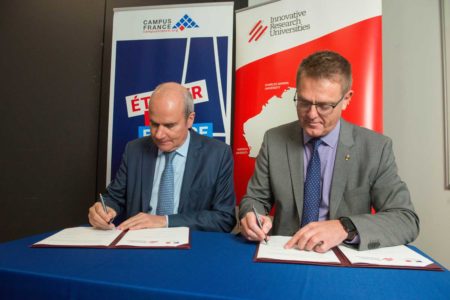
Sharing best practice
The members of the IRU came together in 2003 to establish mechanisms for sharing best practice. Since 2003, this has taken many forms, including regular meetings among Vice-Chancellors and Deputy Vice-Chancellor committees focusing on Academic, Research, First Nations, International, and Corporate issues. These committees have established working groups to address priority university issues, with 13 such groups operating in 2023. First held in 2005 at La Trobe University, the Innovative Research Universities Senior Leaders’ Forum is an annual in-person event (with the exception of a break during the COVID-19 pandemic in 2020-2021) that highlights the important work of the Innovative Research Universities and their leadership teams. Operating on a rotating schedule between members, the Forum enables university leaders to hear from key policy makers and provides opportunities for collaboration, discussion, and advancing IRU’s strategic goals.






